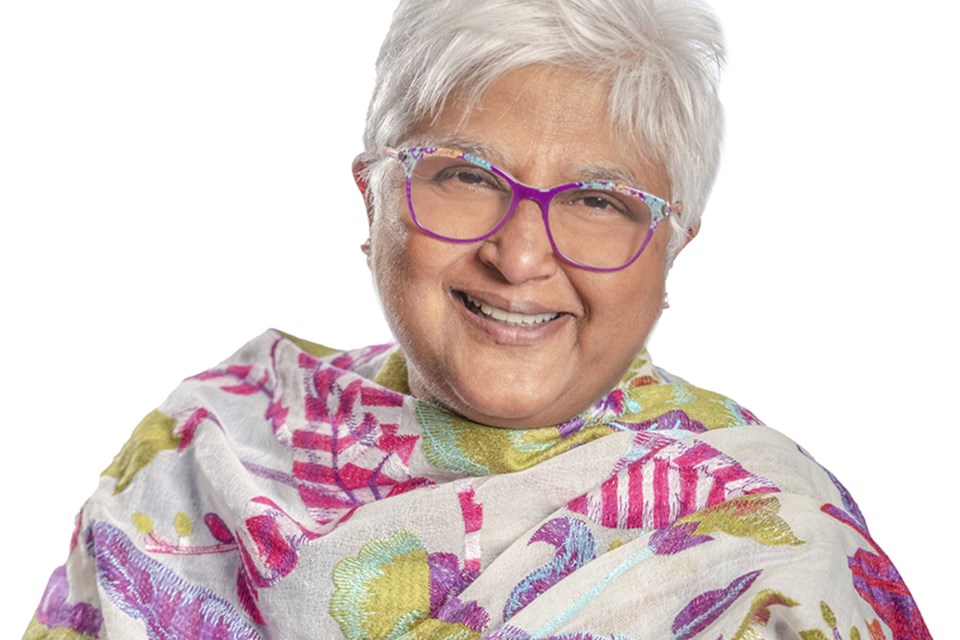SUDBURY - Dr. Sarita Verma, the woman that led the Northern Ontario School of Medicine (NOSM) into becoming Canada's first and only medical university, said that achievement almost didn’t happen.
Verma is coming to the end of a five-year contract at NOSM U and coming to the end of her time as president, CEO, dean and vice-chancellor of the university. Dr Michael Green will assume that role on Nov. 1.
In what could be her final interview with Sudbury.com, Verma spoke about how pleased she is at how the Northern Ontario School of Medicine became NOSM University, and how the medical school’s future was jeopardized by the financial crisis at Laurentian University, which sought creditor protection under the Companies’ Creditors Arrangement Act (CCAA) in February 2021, the first time in Canadian history a publicly-funded university had taken that route.
That Laurentian’s fortunes nearly sunk NOSM U was not made public until now.
"We couldn't talk about it because we were under a gag order under the CCAA, but that's not there anymore," said Verma. "We were actually very, very at risk of being closed."
What’s more, she said the efforts of the medical university’s board were “constrained” by two of its members.
"The reality for the medical school was that the options were extremely limited. We had a board that was constrained by the fact that the President and the Vice President of the Board were both the presidents of Laurentian (Dr. Robert Haché and Claude Lacroix). So there were deeply ingrained conflicts of interest. And I was chair of my own board for about two years because they had so much conflict of interest," Verma said.
She also spoke of the criticism that was directed at the idea of a freestanding NOSM university over fears that it would cost too much to establish it and that there would be a loss of research dollars at Lakehead University for example.
"I had basically myself, and you know, one or two people in the institution that I could trust to talk to. And you know, there was quite a huge unnecessary and destructive communications media-strategy by Lakehead, by the then president (Dr. Moira McPherson), and it was very unfortunate, because it was poorly informed. They kept saying we were going to lose our accreditation if we became a university, but we were going to lose our MD accreditation if we stayed in a bankrupt system," she said.
The accreditation concern was implied in a Lakehead communiqué in June of 2021 where university officials feared that a standalone NOSM university would not be able to afford to continue providing medical education in Thunder Bay.
Verma also said the leadership team at NOSM is what saved the day because the group kept its solidarity and did not engage in the mudslinging or political posturing that seemed to be going on at the time in Sudbury and across Ontario.
"Just stay above it. Stay above the fray. Be professional, have your integrity, and know what's the end game? The end game was the survival of NOSM to become a university," she said.
Verma also succeeded in rescuing millions of dollars in endowments, financial gifts to NOSM, that were in danger of being absorbed by Laurentian through the CCAA process. She admitted that it was a satisfying thing to be able to bring the money back to NOSM U.
"Very much so," said Verma, adding that it was helpful that along with being a family doctor, she was also a lawyer.
Verma said that made it easier to navigate the situation with the many lawyers clamouring for the endowment money.
"So on the Laurentian side, on the CCAA side, we had to really work hard to make sure that the — I think it was around $12 million to $14 million — didn't get scooped up."
She said it was also a battle to recover medical school endowment funds held by Lakehead University at the time.
"On the Lakehead side, we had to actually make petitions to the Public Guardian and trustee, and it was only two months ago that we were able to finally secure the transfer of funds from the Lakehead side. And so that added up to about $22 million that built that endowment," said Verma.
She said the Laurentian debacle is not over. Verma said it will be closely examined for what is happening at many Canadian universities.
"Laurentian University is a case study in what is already being faced by almost every university and college right now, many of them are on the edge and the precipice of disaster," she said.
"Almost every university and college, especially the colleges that relied on international students, are in severe financial peril.”
So what will Dr. Verma miss the most about the job?
"I think in Thunder Bay in particular, and the Northwest in particular, I am definitely going to miss the people and the views. I mean, there is just such a beautiful vista in the Northwest, and traveling around the Northwest was such a joy," she said.
"In the Northeast. I really am going to miss the culture and the people and the diversity of experiences. But what I really, really will miss is a sense of inclusivity. You know, you might think that if you live in a big city and there's a lot of multiculturalism, that you know a woman of color who comes from a background, who you know is a immigrant family, wouldn't fit in, but I felt I fit in and was more accepted in Northern Ontario than I was in any other part of Canada that I've lived in. And I will really miss the kindness and the generosity of the people I never experienced"
Len Gillis is a reporter for Sudbury.com who covers health care and the mining industry,
